Indigenous Governance Database
common law
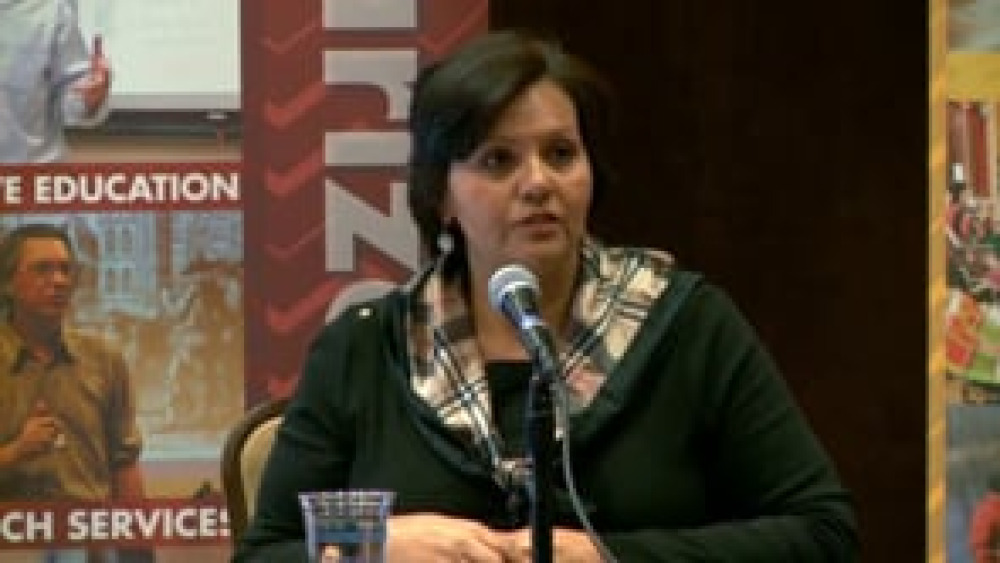
Rae Nell Vaughn: So What's So Important About Tribal Courts?
Rae Nell Vaughn, former Chief Justice of the Mississippi Choctaw Supreme Court, discusses how justice systems are critical to Native nations' exercise of sovereignty, and sets out some key things that those systems need to have in place in order to administer justice fairly and effectively on…
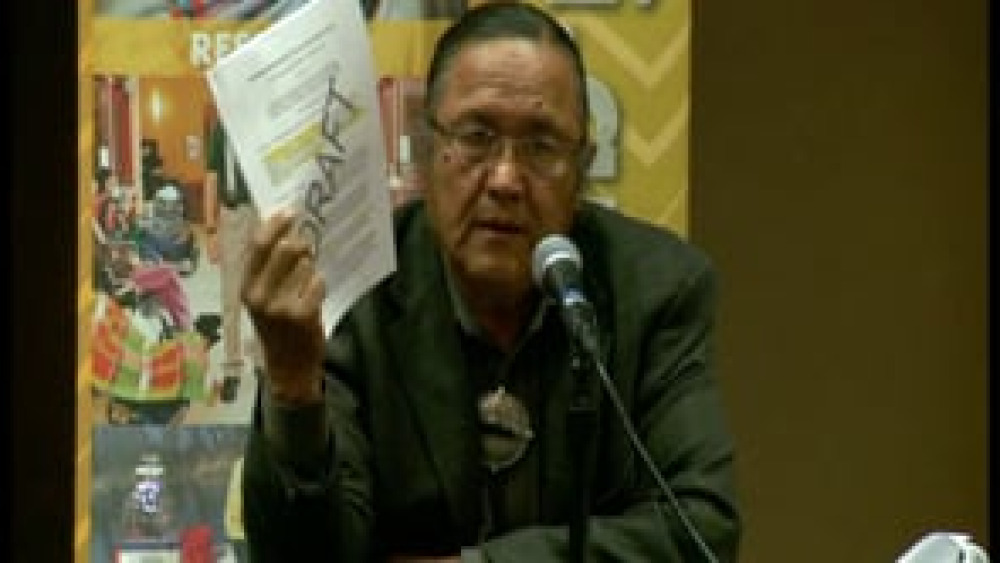
Robert Yazzie: Traditional Principles of Leadership
Former Chief Justice Robert Yazzie of the Navajo Nation Supreme Court provides an overview of the traditional Diné governance system and specifically the leadership principles that Diné leaders relied upon to make sound, informed, strategic decisions in consultation with and on behalf of their…
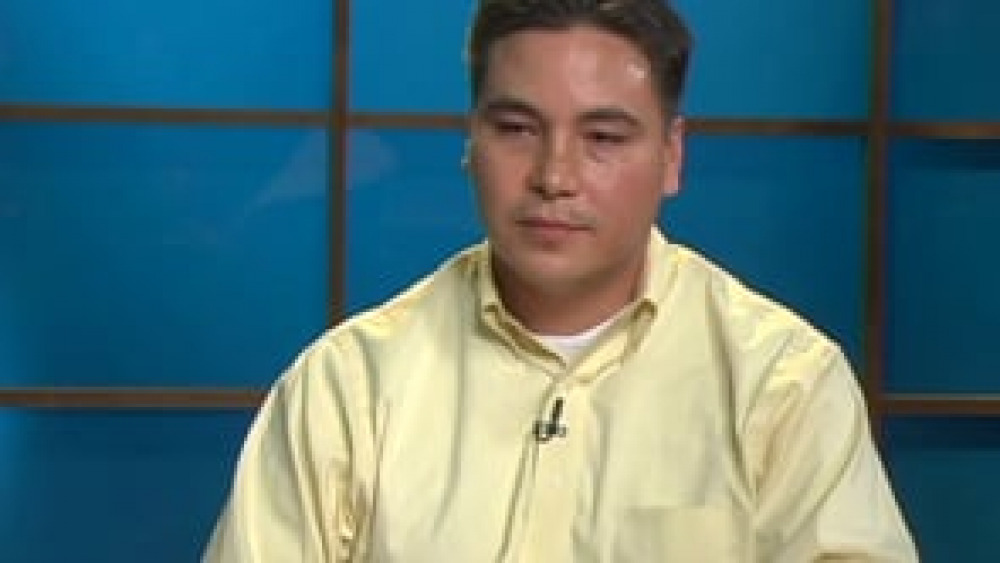
Donald "Del" Laverdure: Nation Rebuilding through Constitutional Reform at Crow
In this in-depth interview with NNI's Ian Record, Donald “Del” Laverdure, a citizen of the Apsáalooke Nation (Crow Tribe) and former Chief Justice of the Crow Tribe Court of Appeals, discusses his nation's monumental effort to discard a constitution and system of governance that were not working…

NNI Indigenous Leadership Fellow: Rae Nell Vaughn (Part 2)
Rae Nell Vaughn, former Chief Justice of the Mississippi Choctaw Supreme Court, shares how her nation methodically re-integrated Choctaw core values into its administration of justice, and how Mississippi Choctaw's creation of a fair and efficient justice system is paying social, cultural,…
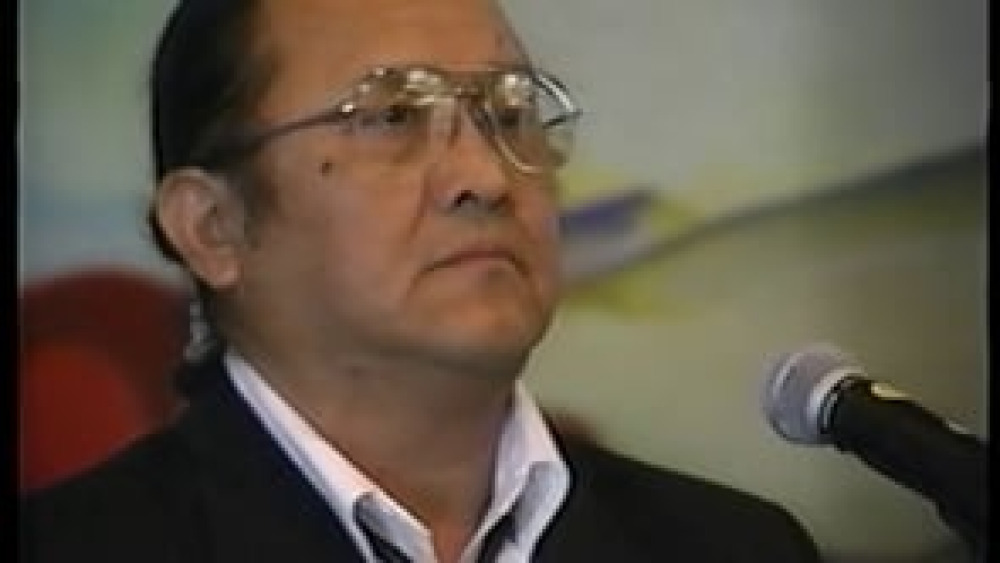
Honoring Nations: Robert Yazzie: The Navajo Nation Judicial Branch
Chief Justice Emeritus Robert Yazzie of the Navajo Nation Supreme Court talks about the Navajo Nation Judicial Branch's application of Navajo common law in its jurisprudence as an example of the importance of Indigenous cultural values and common law into the governance systems of Native nations.
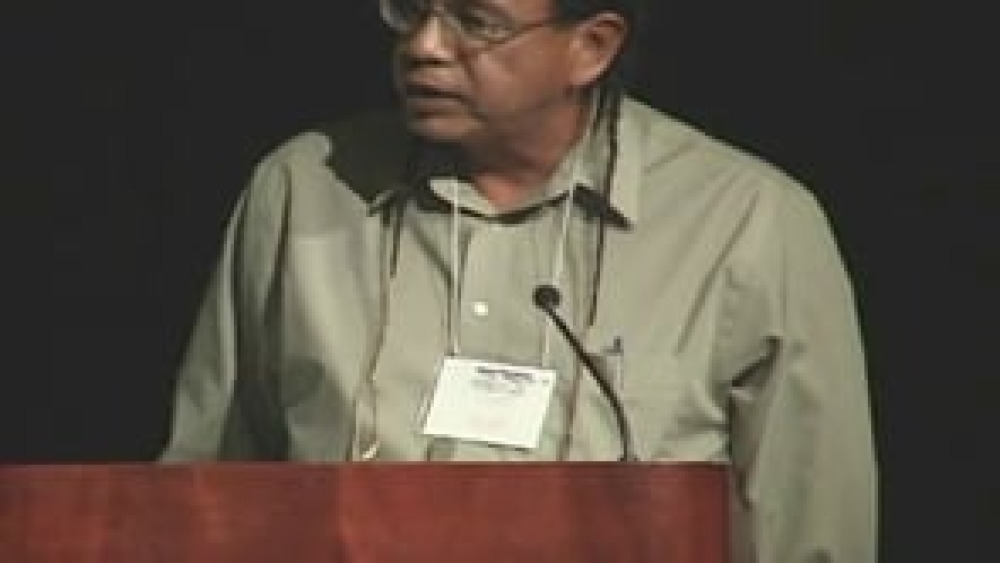
Honoring Nations: Tim Mentz and Loretta Stone: Standing Rock Sioux Tribal Monitors Program
Tim Mentz and Loretta Stone of the Standing Rock Sioux Tribal Monitors Program present an overview of the program's work to the Honoring Nations Board of Governors in conjunction with the 2005 Honoring Nations Awards.
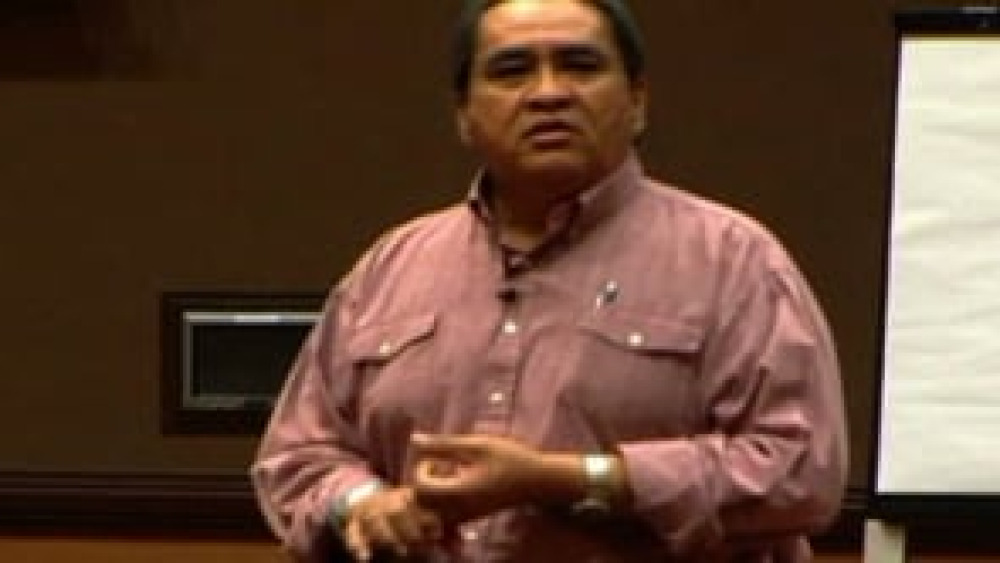
From the Rebuilding Native Nations Course Series: "The Importance of Cultural Match"
Dr. Manley Begay provides an overview of cultural match, which the Native Nations Institute and the Harvard Project have identified as one of the five keys to successful Native nation building.
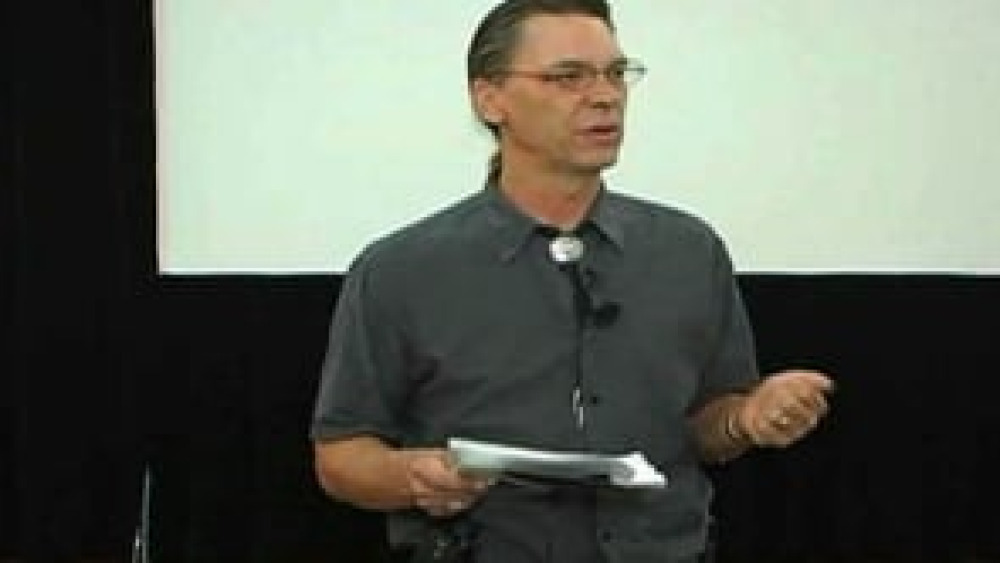
From the Rebuilding Native Nations Course Series: "Justice Systems: Key Assets for Nation Building"
Professor Robert A. Williams, Jr. discusses how an effective, independent justice system can play a pivotal role in a Native nation's efforts to exercise its sovereignty and strengthen its communities.
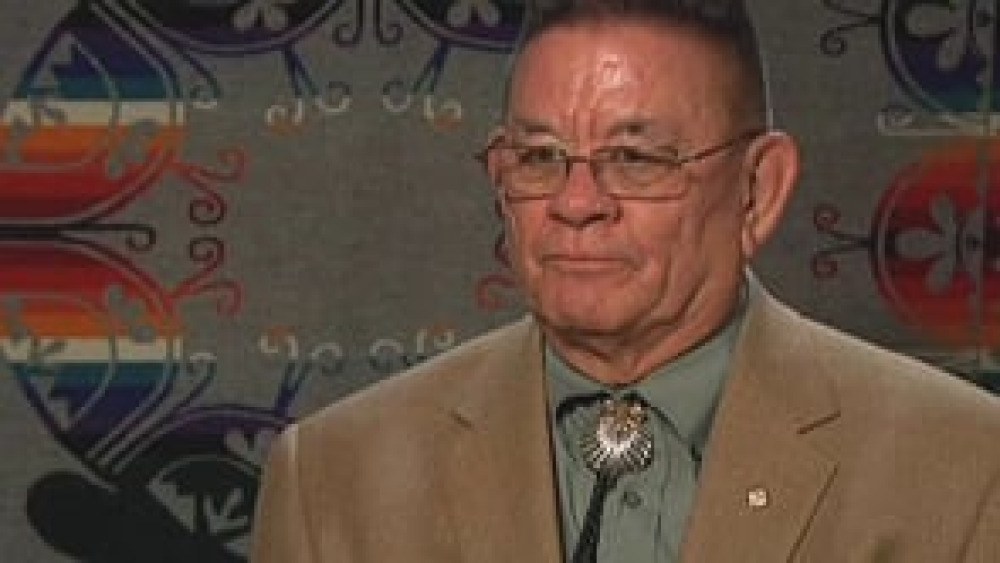
From the Rebuilding Native Nations Course Series: "What Strong, Independent and Legitimate Justice Systems Require"
Native leaders and scholars discuss what Native nations need to do to create strong, independent and culturally legimate justice systems.
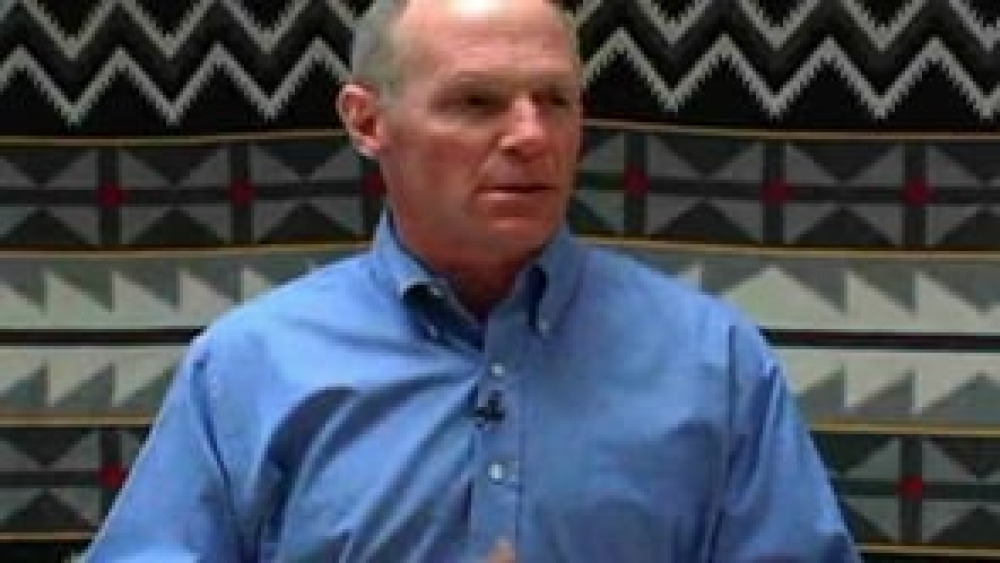
From the Rebuilding Native Nations Course Series: "What Do We Mean When We Say 'Constitutions'?"
Harvard Project on American Indian Economic Development Co-Director Joseph P. Kalt provides a definition of 'constitutions' in the context of nation building.
From the Rebuilding Native Nations Course Series: "Justice Systems and Cultural Match"
Professor Robert A. Williams, Jr. argues that Native nations can reintegrate their unique cultures and common law into their governance systems, specifically their systems for resolving disputes and providing justice to their citizens and others.
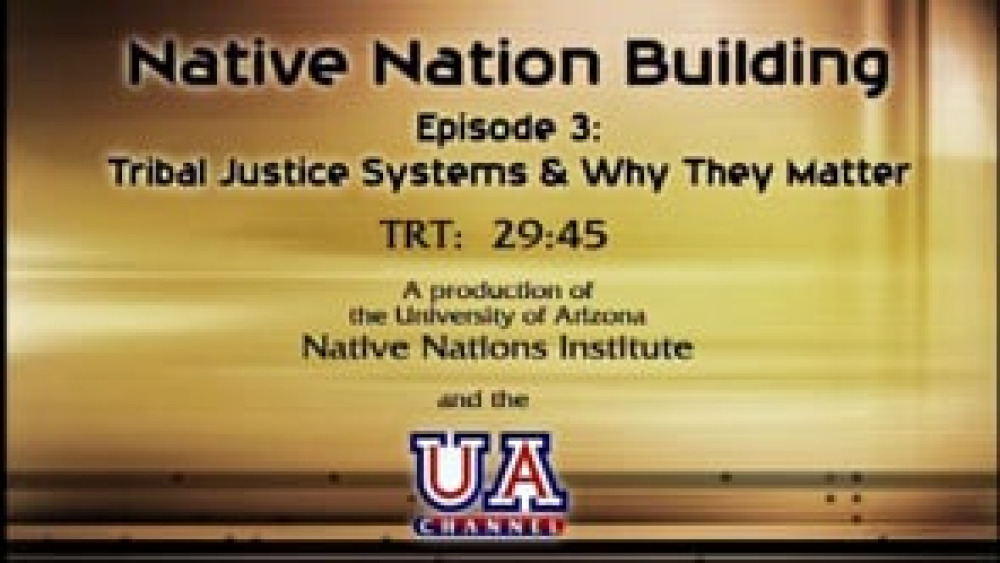
Native Nation Building TV: "Why the Rule of Law and Tribal Justice Systems Matter"
Guests Robert A. Williams, Jr. and Robert Yazzie discuss the importance of having sound rules of law and justice systems, and examine their implications for effective governance and sustainable economic development. They explore these issues and their role in creating a productive environment that…
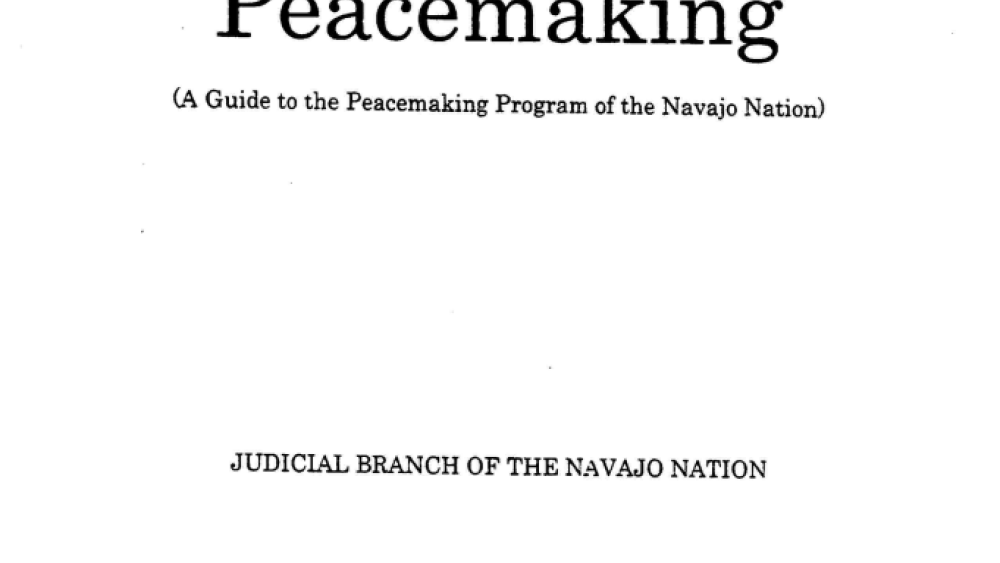
Navajo Peacemaking Guide
The concept of peacemaking or Hózhoji K’e Náhóodleel goes back to the beginning of time and is embedded in the journey narrative. In fact, according to the journey narrative, the Holy People journeyed through four worlds. In the course of their journey, they came upon many problems, which were…
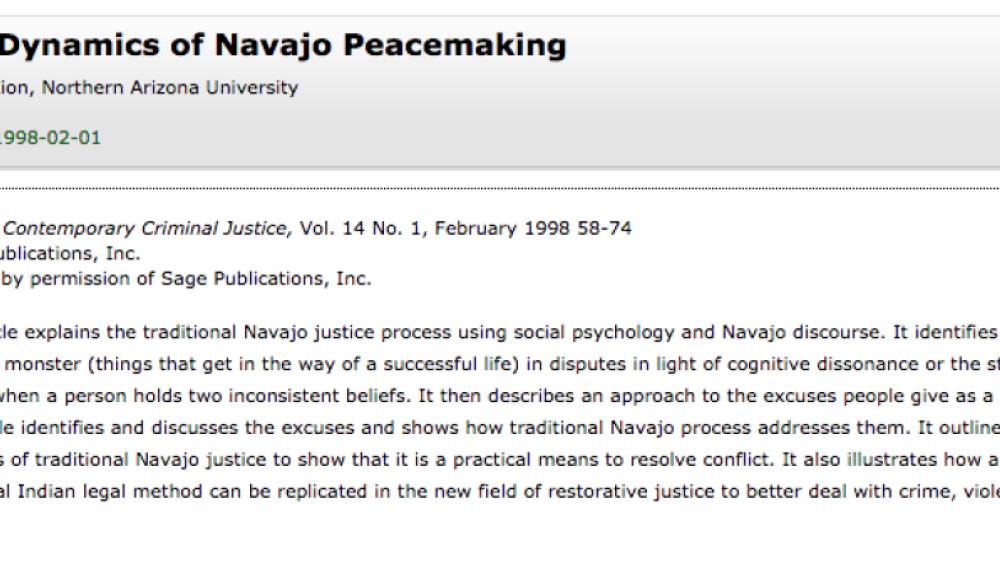
The Dynamics of Navajo Peacemaking
This article explains the traditional Navajo justice process using social psychology and Navajo discourse. It identifies the nayee or monster (things that get in the way of a successful life) in disputes in light of cognitive dissonance or the state of tension when a person holds two inconsistent…
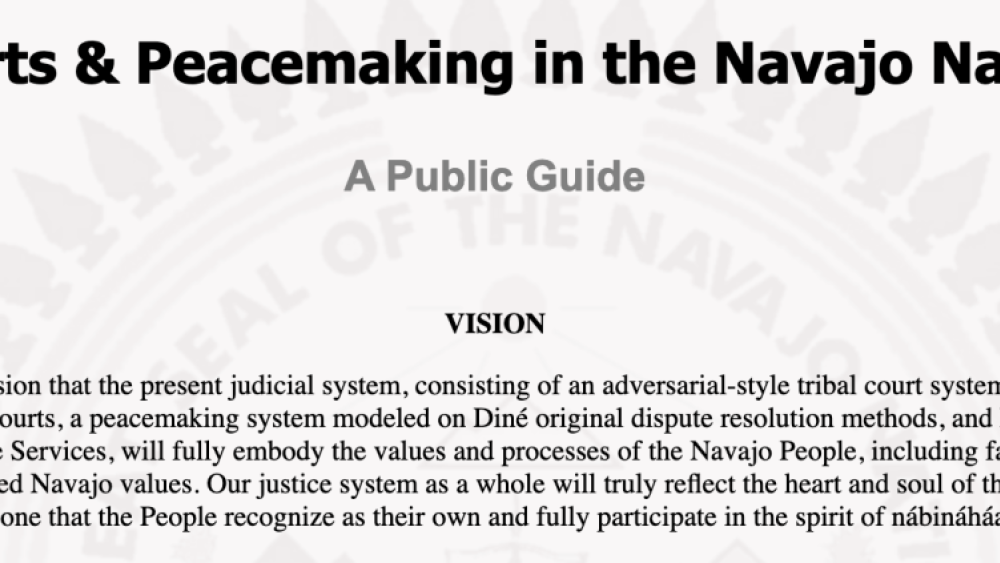
Courts & Peacemaking in the Navajo Nation: A Public Guide
The history of our judiciary begins in our ancient history. According to the Journey Narrative, the People journeyed through four worlds and, in the course of their journey, came upon many problems both natural and caused by the People, which had to be resolved before the journey continued. The…
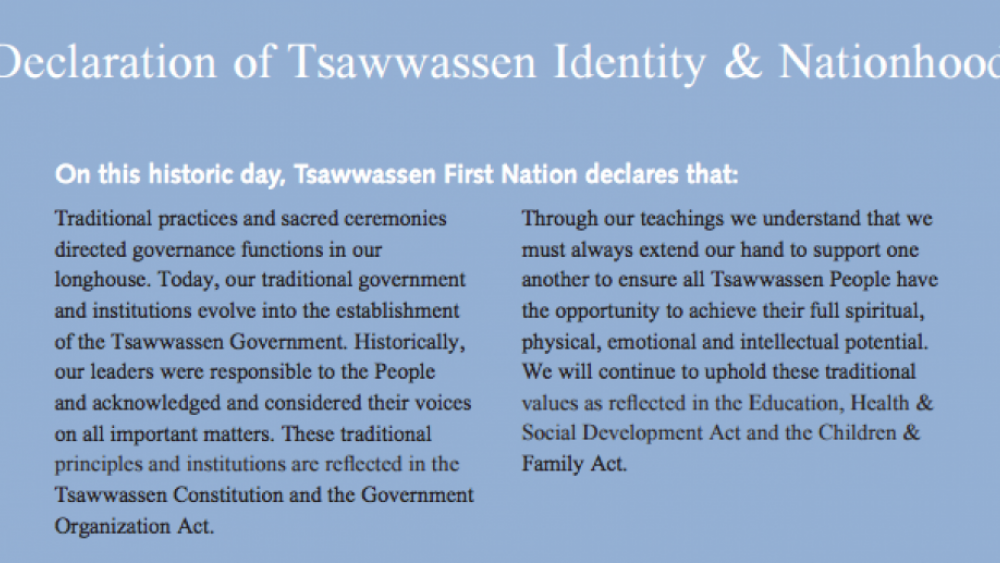
Declaration of Tsawwassen Identity & Nationhood
We are Tsawwassen People "People facing the sea", descendants of our ancestors who exercised sovereign authority over our land for thousands of years. Tsawwassen People were governed under the advice and guidance of leaders, highborn women, headmen, and speakers through countless generations...
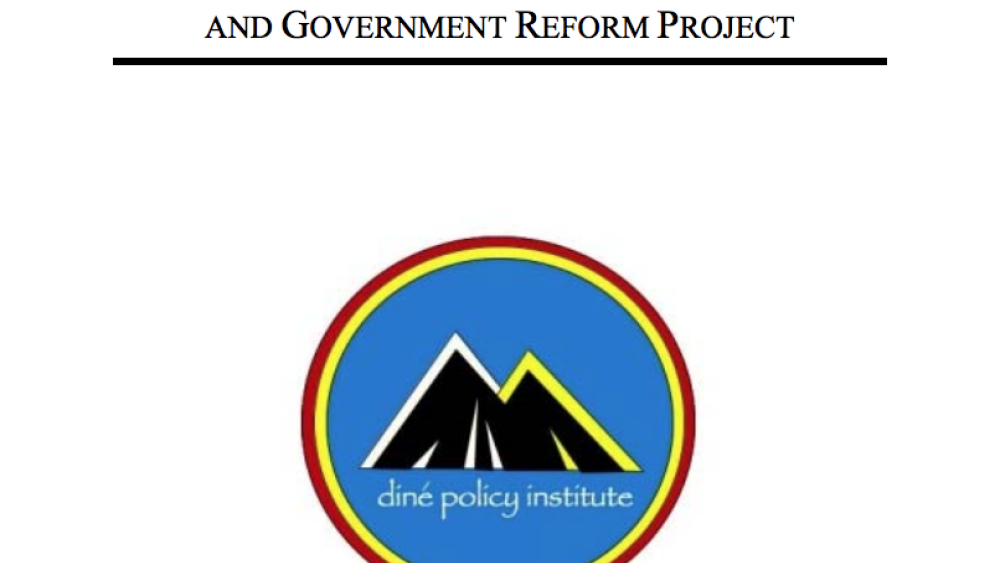
Navajo Nation Constitutional Feasibility and Government Reform Project
This paper will review three important elements related to the constitutional feasibility and government reform of the Navajo Nation. The first section will outline the foundational principles related to constitutionalism and ask whether constitionalism and the nation-state are appropriate…
![Tribal Law as Indigenous Social Reality and Separate Consciousness: [Re]Incorporating Customs and Traditions into Tribal Law Tribal Law as Indigenous Social Reality and Separate Consciousness: [Re]Incorporating Customs and Traditions into Tribal Law](/sites/nnigovernance.arizona.edu/files/styles/resources/public/resources/Screen%2520Shot%25202016-10-11%2520at%25201.22.13%2520PM.png?itok=r-DrCTma)
Tribal Law as Indigenous Social Reality and Separate Consciousness: [Re]Incorporating Customs and Traditions into Tribal Law
At some point in my legal career, I recall becoming increasingly uncomfortable with the inconsistencies between the values in the written law of various indigenous nations and the values I knew were embedded in indigenous societies themselves. The two are not entirely in harmony, and in fact, in…
